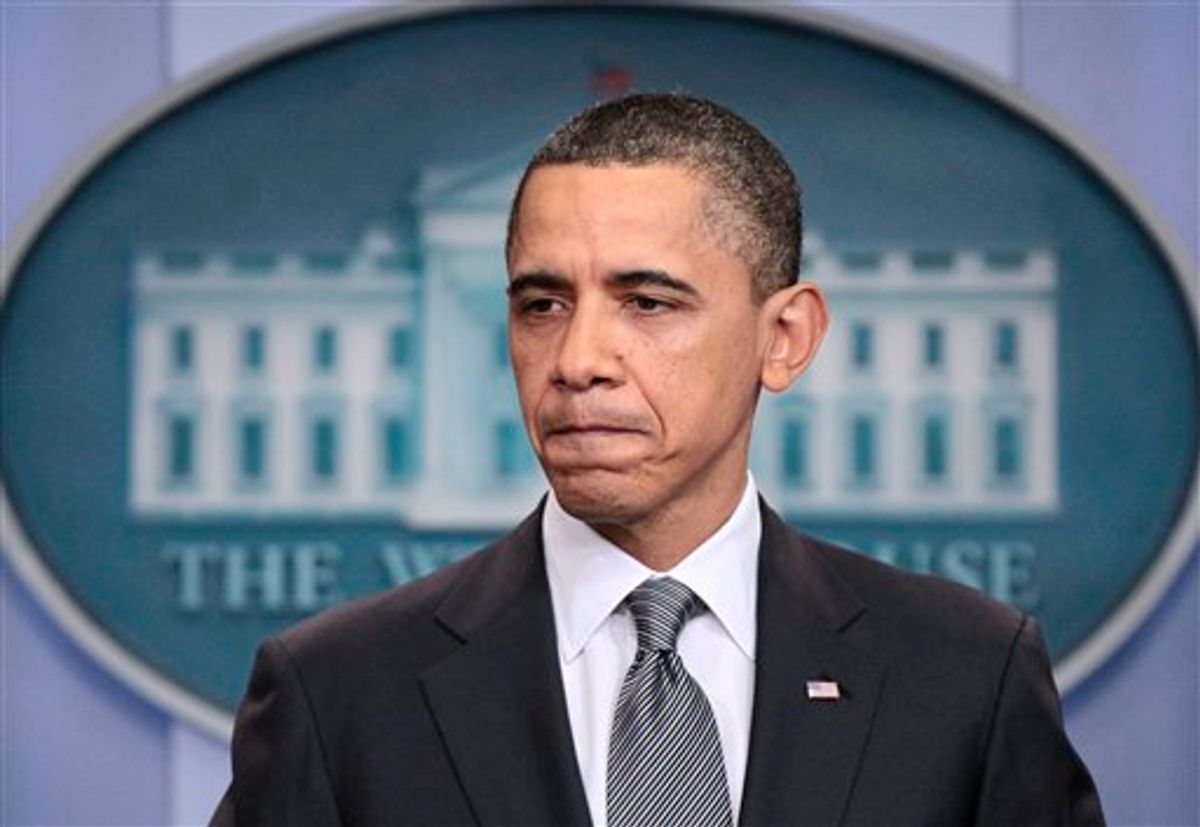This piece originally appeared at Robert Reich's blog.
I was there in 1995 when the government closed because of a budget stalemate. I had to tell most of the Labor Department's 15,600 employees to go home and not return the next day. I also had to tell them I didn't know when they'd next get a paycheck.
There were two shutdowns, actually, rolling across the government in close succession, like thunder storms.
It's not the way to do the public's business.
Newt Gingrich got blamed largely because his ego was (and is) so big he couldn't stop blabbing that Clinton should be blamed. (Gingrich's complaint of a bad seat on Air Force One didn't help.)
But the larger loss was to the dignity and credibility of the United States government. When average Americans saw the Speaker of the House and the President of the United States behaving like nursery school children unable to get along, it only added to the prevailing cynicism.
Cynicism about government works to the Republicans' continued advantage.
Case in point. House Budget Chairman Paul Ryan unveiled a plan today that should make every American cringe. It would turn Medicare into vouchers whose benefits are funneled into the pockets of private insurers. It would make Medicaid and Food Stamps into block grants that allow states to ignore poor people altogether. It would drastically cut funding for schools, roads, and much else Americans need. And many of the plan's savings would go to wealthy Americans who'd pay even lower taxes than they do today.
Ryan's plan has no chance of passage -- as long as Democrats are still in control of the Senate (even Democratic deficit hawks like Kent Conrad and Ben Nelson are appalled by it) and the White House.
But this so-called "blueprint" could be a blueprint for America's future when and if right-wing Republicans take charge.
Which is where the cynicism comes in -- and the shutdowns. Republicans may get blamed now. But if the shutdowns contribute to the belief among Americans that government doesn't work, Republicans win over the long term. As with the rise of the Tea Partiers, the initiative shifts to those who essentially want to close it down for good.
That's why it's so important that the President have something more to say to the American people than "I want to cut spending, too, but the Republican cuts go too far." The "going too far" argument is no match for a worldview that says government is the central problem to begin with.
Obama must show America that the basic choice is between two fundamental views of this nation. Either we're all in this together, or we're a bunch of individuals who happen to live within these borders and are mainly on their own.
This has been the basic choice all along — when the Founding Fathers wrote the Constitution, in the Civil War, when we went through World War I and World War II and the Great Depression in between, during the Civil Rights movement and beyond.
The President needs to remind us that as members of the same society we have obligations to one another — that the wealthiest among us must pay their fair share of taxes, that any of us who loses our jobs or homes or gets terribly sick can count on the rest of us, and that we have collective obligations to our elderly, our children, and the rest of the planet.
This is why we have government. And anyone who wants to shut it down or cut it down because they say we can't afford it any longer is plain wrong. We are the richest nation in the world, richer than we've ever been. We can afford to remain a society whose members are in it together.



Shares